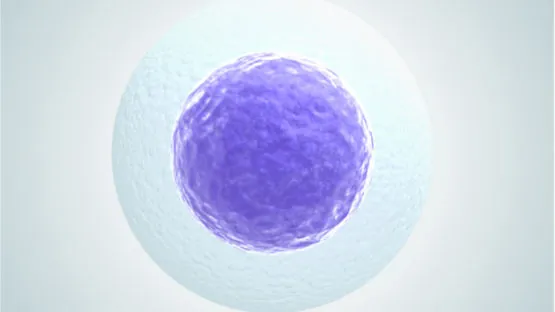Reporters publishing in Nature Aging have identified a metabolite that appears to restore the age-related loss of quality of egg cells (oocytes) in mice.
Spermidine is not just for sperm
While it was originally found in semen, the metabolite spermidine has been found in many different tissues, including ovaries [1]. This molecule has been found to be involved in the regulation of multiple fundamental aspects of metabolism and aging, reducing inflammation and influencing oxidative stress, genomic stability, mitochondrial maintenance, and proteostasis [2].
Previous work has found that spermidine administration lengthens the lifespan of model organisms and human cells by inducing autophagy [3]. Other work has found that it improves memory [4] and heart function [5] in mice.
As researchers have previously found that other metabolic molecules, such as NMN, have positive effects on ovarian aging [6], this work sets out to discover whether spermidine may also have an impact.
A metabolomic investigation
The experimentation began with a comparison of the metabolome, the collection of metabolic biochemicals, in the the ovaries of younger and older mice. The differences were clear and substantial. Pathways related to steroid hormones were substantially upregulated in older animals, while pyrimidines and purines were downregulated, as was amino acid synthesis. Spermidine was also substantially downregulated.
The researchers then tested the effects of spermidine supplementation and found positive results. As expected, the supplement injection increased spermidine levels in ovaries. In older mice, the ovarian follicles are degenerated, but this appeared to have been partially restored through spermidine injection. The oocytes matured more quickly, and they became more receptive to sperm and more likely to be successfully fertilized.
Autophagy, as expected, was positively affected. In particular, mitophagy, the clearing-out of damaged mitochondria, was critical in the positive effects, which included a decrease in reactive oxygen species. Spermidine also had positive effects on other aspects of the metabolome. While spermidine did not restore the various pathways to the levels seen in young mice, it had substantial metabolic effects, including on the Wnt signaling pathway and the circadian rhythm.
The fertility of the mice was directly tested. Mice give birth to litters, and their litter size is affected by aging. Young mice often give birth to fourteen pups at a time, while older mice normally give birth to only three. However, older mice given spermidine gave birth to an average of six.

Chromosomes were also positively affected. The number of chromosomal aberrations and misalignments were significantly decreased by spermidine. This had downstream consequences: in addition to the increased fertilization rate, embryos from mice given spermidine were more likely to successfully divide and grow into pups.
Impacts for other species
The effects of spermidine are not unique to mice. Oocytes were taken from pigs and exposed to hydrogen peroxide, which led to an increase in reactive oxygen species. Spermidine was found to alleviate this increase, suggesting a potential improvement in fertility.
However, this does not prove that it increases fertility in pigs or humans. Only clinical trials can prove that, and given the long gestation time of people and the need for a sufficiently large trial, it may be some time before this or another supplement can be said to be clinically proven to improve fertility. However, if it does, it may give hope to aging women who want to birth more children.
Literature
[1] Lefèvre, P. L., Palin, M. F., & Murphy, B. D. (2011). Polyamines on the reproductive landscape. Endocrine reviews, 32(5), 694-712.
[2] Partridge, L., Fuentealba, M., & Kennedy, B. K. (2020). The quest to slow ageing through drug discovery. Nature Reviews Drug Discovery, 19(8), 513-532.
[3] Eisenberg, T., Knauer, H., Schauer, A., Büttner, S., Ruckenstuhl, C., Carmona-Gutierrez, D., … & Madeo, F. (2009). Induction of autophagy by spermidine promotes longevity. Nature cell biology, 11(11), 1305-1314.
[4] Wang, I. F., Guo, B. S., Liu, Y. C., Wu, C. C., Yang, C. H., Tsai, K. J., & Shen, C. K. J. (2012). Autophagy activators rescue and alleviate pathogenesis of a mouse model with proteinopathies of the TAR DNA-binding protein 43. Proceedings of the National Academy of Sciences, 109(37), 15024-15029.
[5] Eisenberg, T., Abdellatif, M., Schroeder, S., Primessnig, U., Stekovic, S., Pendl, T., … & Madeo, F. (2016). Cardioprotection and lifespan extension by the natural polyamine spermidine. Nature medicine, 22(12), 1428-1438.
[6] Miao, Y., Chen, J., Gao, Q., & Xiong, B. (2021). Generation and assessment of high-quality mouse oocytes and embryos following nicotinamide mononucleotide administration. STAR protocols, 2(1), 100298.




